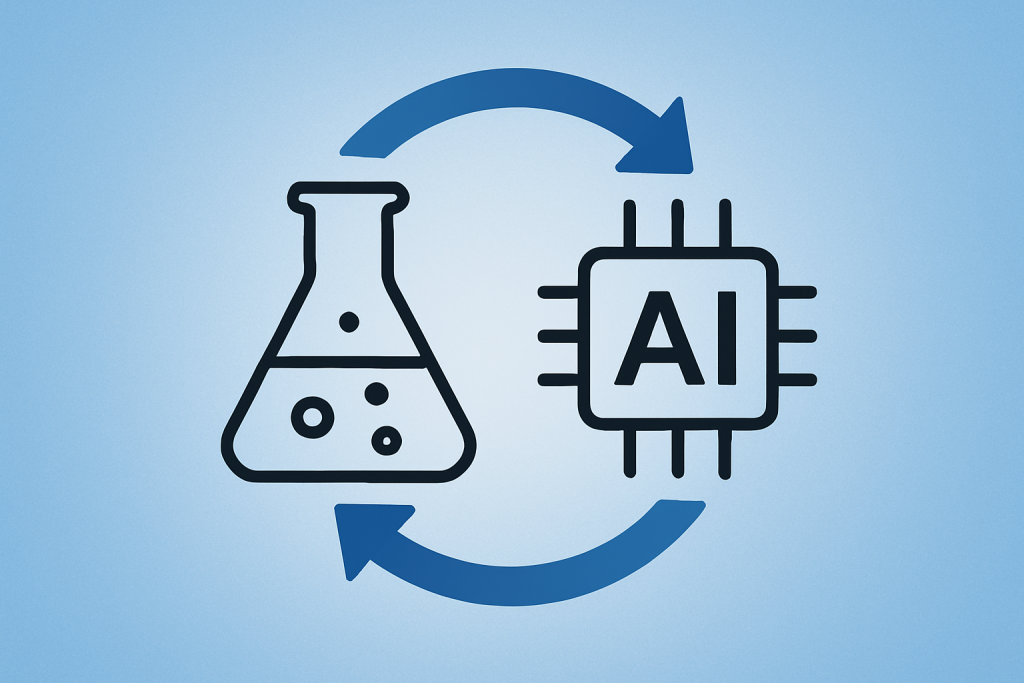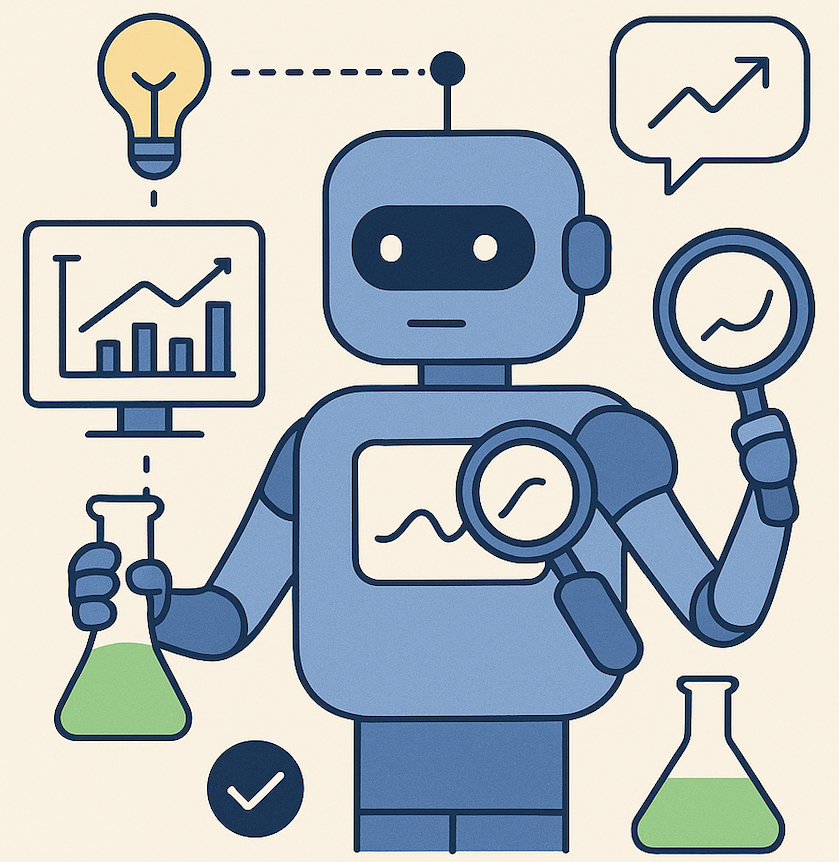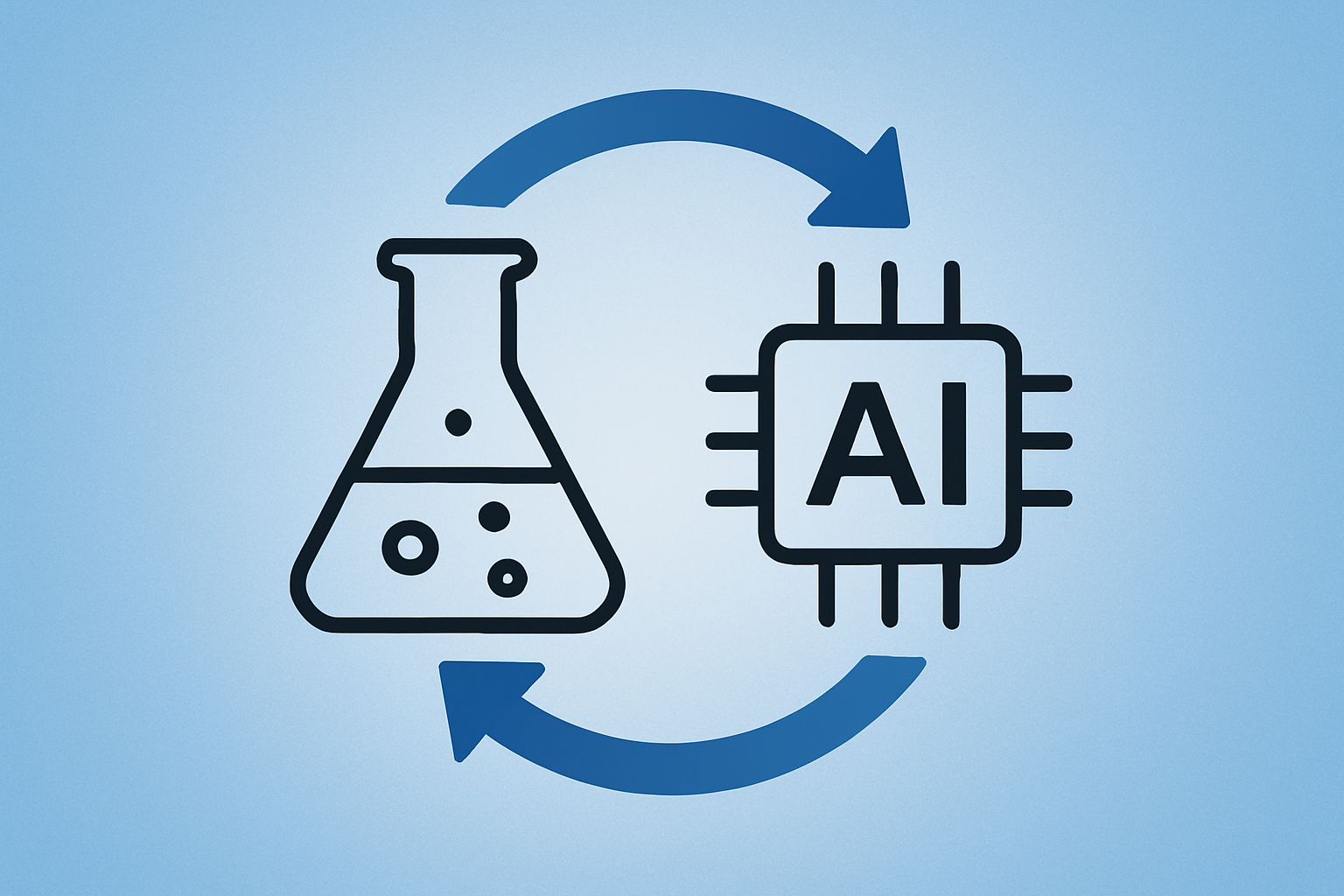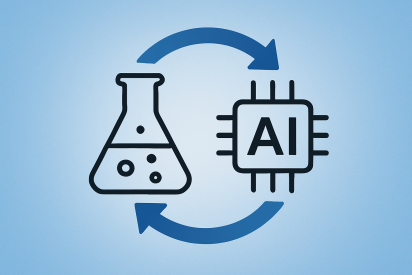
AI is transforming how digital products are built, marketed, and optimised. It can write code, design copy, summarise data, and recommend (or even make) decisions at scale.
The promise is speed, efficiency, and scalability, but it could be dangerous to just ‘plug n play’.
To turn potential into performance, we need research to uncover opportunities, experiments to validate what works, and feedback to guide what we scale.
That is where good experimentation can play a vital role.
At Creative CX we help businesses make better decisions through structured testing. And now, as AI capabilities grow, we are also helping those same teams figure out what to trust, what to ship and what to rethink.
Just as importantly, AI is helping to improve experimentation itself. It is already speeding up research, simplifying analysis and improving governance, and processes.
That means more room for creativity. More room for impact.
This two-way relationship, AI supporting experimentation and experimentation validating AI, is where the real opportunity lies.
How AI Supports Experimentation
AI is already helping teams move faster through key parts of the experimentation process.
Smarter, faster research
Insight is often hard to extract from large, messy datasets.
This can slow the process down significantly, sometimes even forcing it to be skipped altogether.
AI can help here. It can summarise qualitative research, cluster behaviour patterns, categorise themes, tag session replays, and even surface anomalies.
That means faster insight without skipping the nuance.
Supporting design and build
AI tools can now assist with front-end dev, write test variants and even auto-generate CSS or experiment wrappers.
We have already seen Copilot and similar tools reduce build time for simple tests. It is not perfect, but it is a strong head start.
We’ve invested heavily in experienced developers who work closely with client teams to understand the problem we are trying to solve, validate ideas early and execute on complex builds.
That human expertise is critical, especially when experiments are nuanced, high-risk or part of a wider strategic roadmap.
AI is not ready to replace that. But it can support it. By automating some of the more repetitive or low-risk tasks, it helps our developers move faster without losing clarity or control.
The result is a more efficient build process with better focus on the decisions that matter most.
Speeding up analysis
One of the biggest time sinks in experimentation is post-test analysis.
AI can now summarise results, highlight outliers and spot patterns across segments.
This can help teams avoid decision paralysis, or worse, acting on noise.
We see many businesses take so long to complete test analysis that by the time results are ready, the team has already moved on emotionally and strategically from the topic.
Automating at least part of the process is already having a huge impact.
Making testing more scalable
When speed and setup costs go down, the opportunity space expands.
AI is making it more viable to test more ideas, across more journeys, for more segments. That is good news for teams looking to move from reactive optimisation to continuous learning.
How Experimentation Supports AI

AI can generate content, automate decisions and predict outcomes, but none of that guarantees it is appropriate for your customers, right for your business or safe to deploy without careful consideration.
For years, companies have been sold tools, features and plugins that come with big promises on performance.
We often help teams validate whether those things actually work in their specific context, or help them configure and deploy them more effectively. Things like Klarna, sizing tools, payment methods, and product finders.
With AI, there’s now a tidal wave of similar tools entering the market. They will be tempting to plug in. But very rarely does one size fit all.
That is where experimentation comes in. It provides the evidence, control and guardrails AI rollouts need.
Testing what AI builds
Whether it is a recommendation engine, a chatbot or an AI-written product description, we cannot assume performance.
Experiments help teams measure the actual impact, not just the intent.
Does it improve conversion? Does it speed up the journey? Or does it cause confusion?
We find out by testing it.
Managing risk at rollout
AI models can behave unpredictably, especially in complex or high-stakes environments.
Experimentation frameworks, such as feature flagging and staged rollouts, give teams the control they need to spot issues early and contain them.
This is key to building trust with stakeholders and customers.
Surfacing bias and blind spots
AI systems can amplify bias. Experiments help surface where things break, or break differently, for different users.
Whether that is through segmentation, monitoring engagement or analysing dropout points, experimentation brings the kind of scrutiny AI systems require.
Improving AI over time
Experiments generate real-world performance data, which is exactly what many AI systems need to improve.
In some cases, the experiment itself produces better labelled data. In others, it simply gives teams a feedback loop to guide model iteration.
Either way, it keeps learning grounded in reality.
Where to Start
AI brings speed. Experimentation brings confidence.
Together, they offer a smarter, safer way to build digital products. One that balances ambition with evidence.
For most teams, the opportunity is not about replacing your current process. It is about enhancing it:
- Use AI to reduce friction in research, design, and analysis.
- Use experimentation to validate new AI-driven experiences before you scale them.
- Build feedback loops that connect product, data, and design design teams.
- Keep humans in the loop, especially when testing what AI gets wrong.
At CCX, we help enterprise teams build the infrastructure, habits and culture needed to test at scale.
That includes understanding how and where to bring AI into the process, and how to stay in control of it.
The message here is simple. If you want to make the most of AI, you need a strong experimentation practice.
And if you want your experimentation practice to scale, AI can help get it there.



